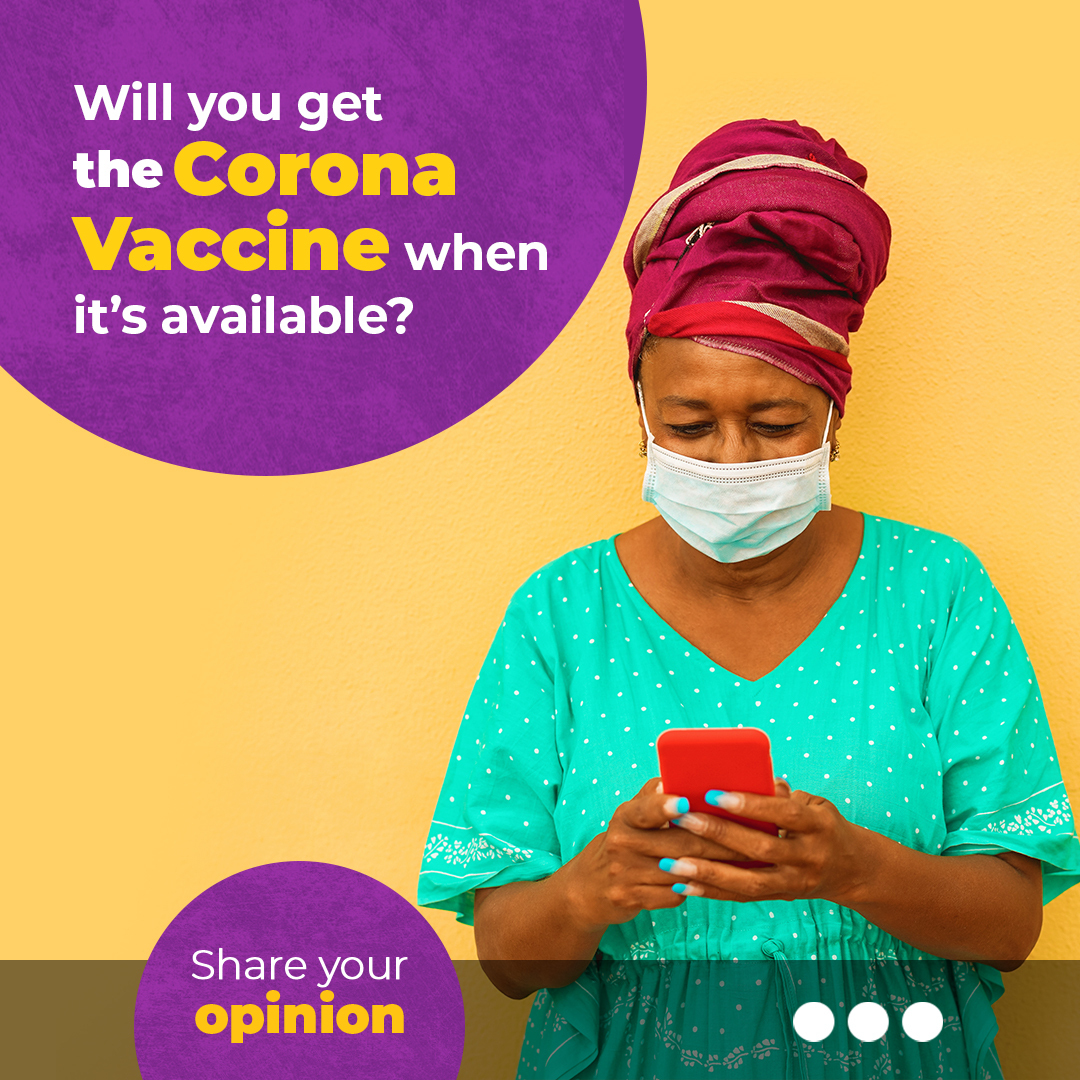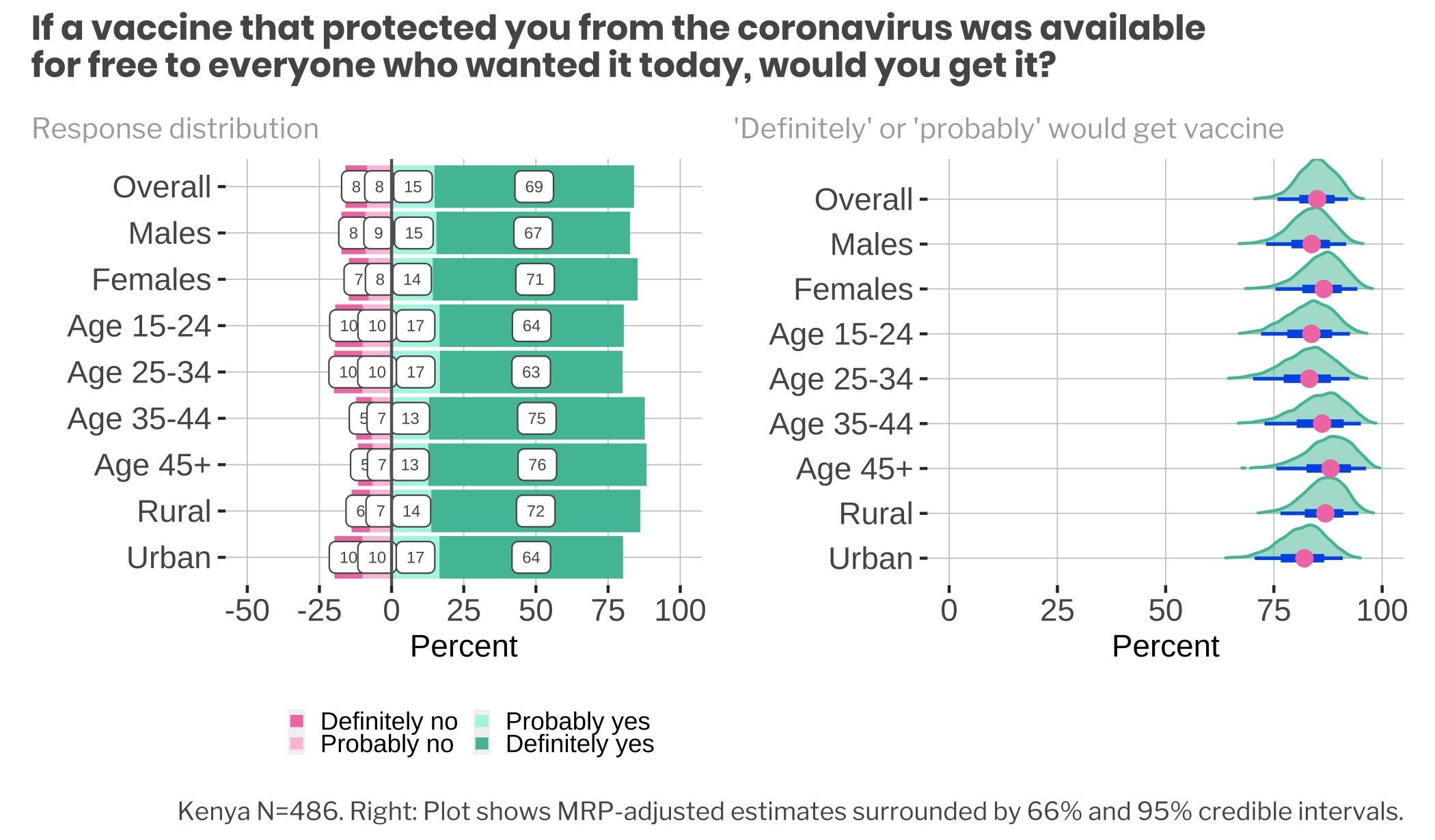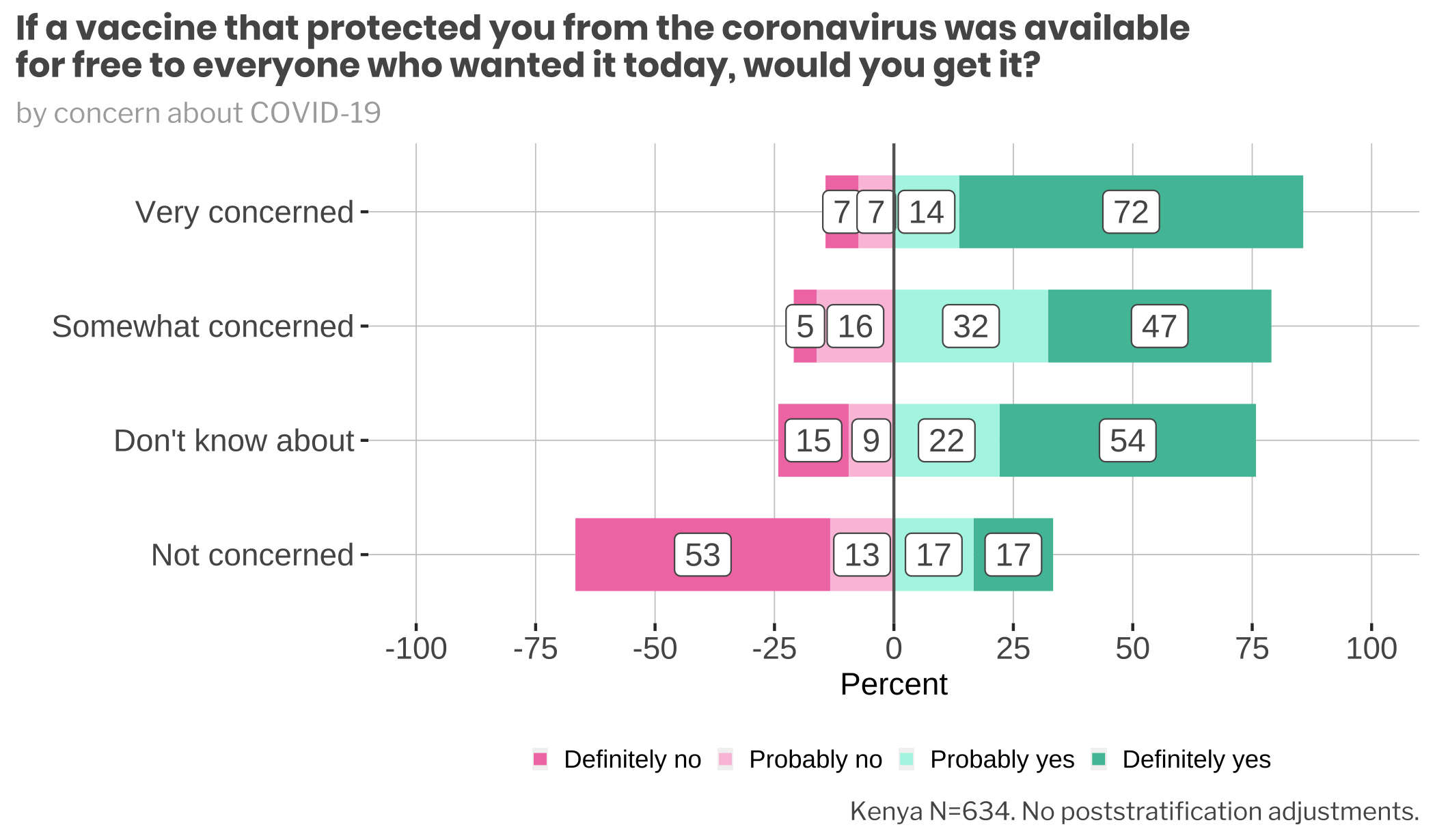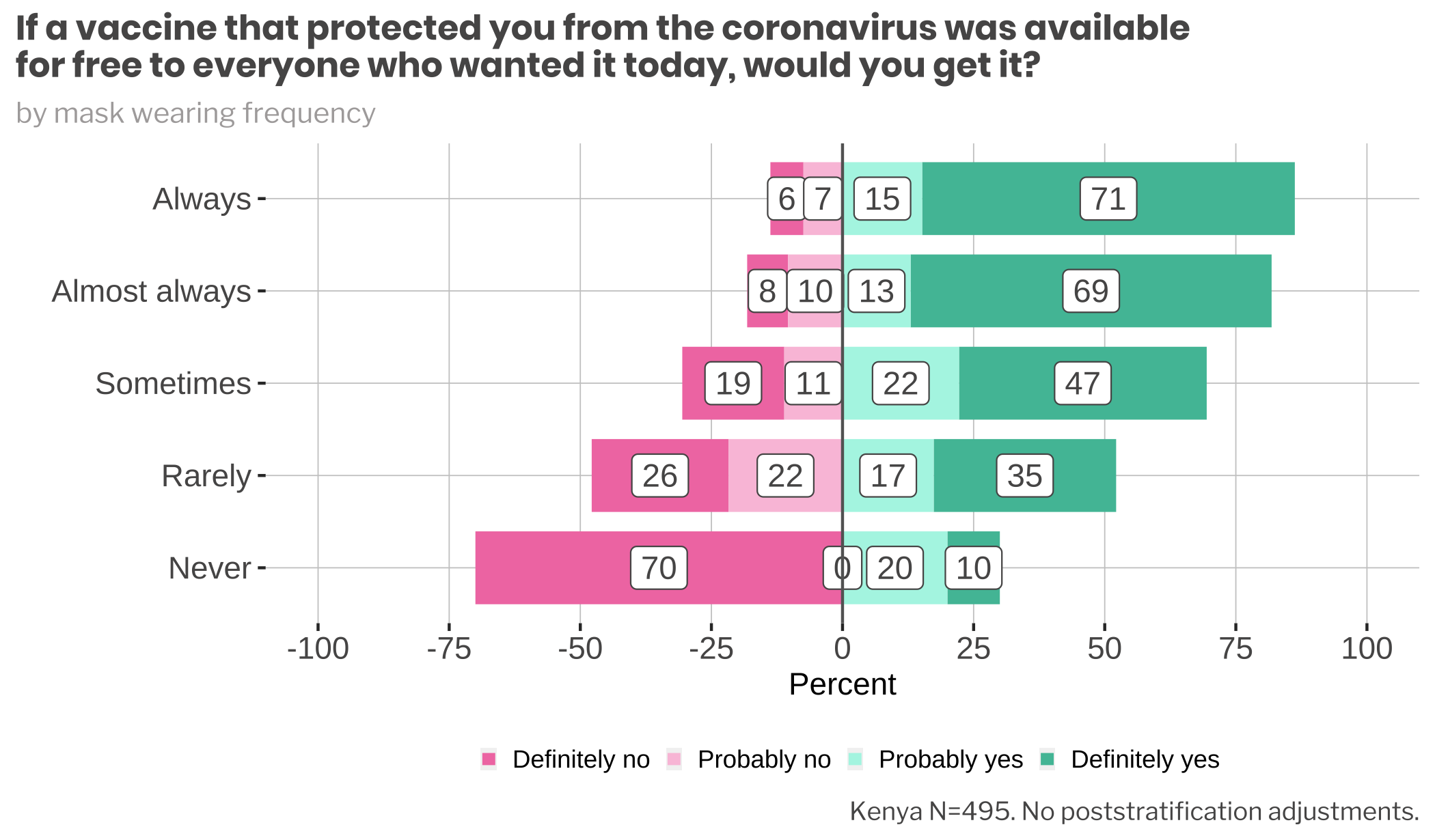Scientists developed efficacious vaccines against COVID-19 in record time. The next big challenge awaits: convincing enough people to get vaccinated to achieve herd immunity.
In late November 2020, we launched a polling effort through askNivi, our free conversational agent for health, to monitor public opinion about COVID-19 vaccines. We’re running advertisements on social media that invite people to share their opinion via an askNivi poll (Messenger or WhatsApp). The people who respond are a self-selected convenience sample of mobile internet users, so we use multilevel Bayesian regression and post-stratification to make the results more representative of the population.

After asking users to select a language, accept our terms and conditions, and provide basic demographic information, we ask the following1:
- How concerned are you about COVID-19 🦠?
- Have you or anyone you live with 🏠 ever had COVID-19?
- If a vaccine 💉 that protected you from the coronavirus was available for free to everyone who wanted it today, would you get it?
Between November 20th and 29th, 2020, 486 people in Kenya completed the survey with complete demographic information for adjustment. 84 percent of respondents said they would definitely (69%) or probably (15%) get vaccinated, similar to what recent polls found in South Africa (82%) and Nigeria (65%) (Lazarus et al. 2020). This did not vary much across subgroups. We estimate that the probability is greater than 95% that at least 70% of people would be likely to get vaccinated if the vaccine were available for free today.

This might be sufficient public support to reach herd immunity with an efficacious vaccine. According to Anderson et al. (2020), herd immunity could be achieved with 63 to 75% coverage with a vaccine that has 95% efficacy, which appears to be the case with the vaccine candidates from Moderna and Pfizer. However, if efficacy is only 70%, coverage might need to be greater than 85% to achieve herd immunity.
Unsurprisingly, the people who are not concerned about COVID-19 are more likely to say they will not get vaccinated. The same goes for people who never or rarely wear masks in public.


The most common reasons for not wanting to get vaccinated were a desire for more information and not believing in vaccines. Among people who said they were likely to get vaccinated, roughly two-thirds said their likelihood of getting vaccinated would decrease somewhat if the vaccine requires multiple doses or if minor side effects are reported.
See below for additional details from our initial poll in Kenya. A potential limitation of the data is that the respondents are all mobile internet users, and are thus likely to be wealthier and more educated on average. A recent global analysis suggested that fewer years of education was linked to less uptake of vaccines (Figueiredo et al. 2020). If our sample is more educated relative to the general population, then our estimates could be biased toward vaccine uptake. We adjusted for age, county, gender, setting (rural/urban), and language.
If people are willing to continue answering questions, the extended poll asks about children, mask wearing, information sources, and reasons for not wanting to get vaccinated.
↩︎